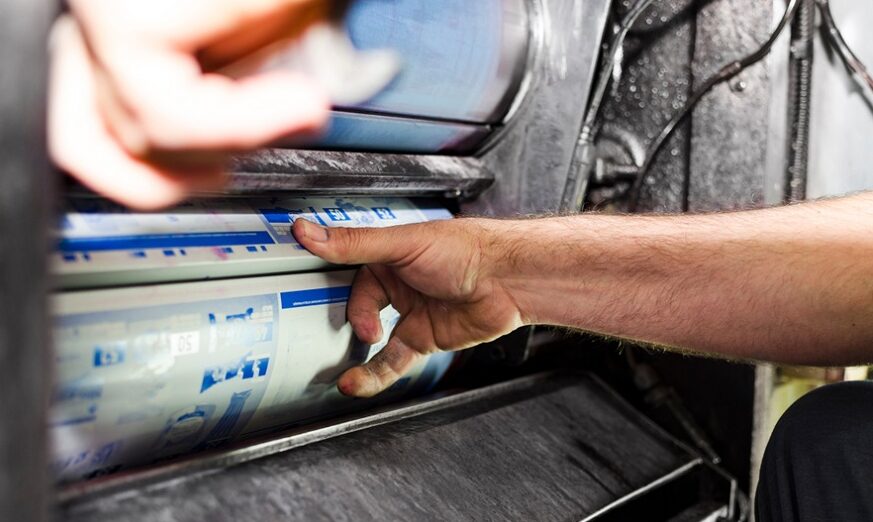In today’s fast-paced digital world, traditional marketing methods still hold their ground. One such method is Offset Printing for Postcards. This printing technique remains a favorite for many businesses due to its efficiency and cost-effectiveness. From small businesses to large corporations, postcards printed via offset printing have proven to be an effective tool in reaching target audiences.
For businesses, especially those in marketing, understanding the nuances of offset printing can be a game-changer. This article will delve into the world of offset printing for postcards, exploring its benefits, processes, and how it can revolutionize your marketing strategy.

What is Offset Printing?
Offset printing is a printing technique where an inked image is transferred from a plate to a rubber blanket, then to the printing surface. It’s widely used for producing high-quality prints in large volumes, such as magazines, brochures, and postcards.
History of Offset Printing
The origins of offset printing date back to the early 20th century. It evolved as a more efficient alternative to traditional printing methods, offering faster production times and lower costs.
Benefits of Offset Printing for Postcards
- High Quality: The color accuracy and sharpness in offset printing are unparalleled.
- Cost-Effective: Ideal for large print runs, reducing the cost per postcard.
- Versatility: Can print on various materials, making it perfect for postcards with unique textures.
Cost Efficiency
One of the main advantages of offset printing for postcards is its cost-effectiveness. For businesses aiming to reach a broad audience, this printing method is economically viable. Cost of offset printing is significantly lower per unit when printing in bulk.
The Offset Printing Process
The offset printing process involves several steps to ensure high-quality prints. Understanding these steps can help businesses make informed decisions about their printing needs.
Pre-Press Preparation
Before printing, files are prepared and plates are created. This ensures that each postcard will be printed with precision.
Printing
During the printing phase, the image is transferred onto a rubber blanket, then onto the postcard material. This indirect transfer method ensures even ink distribution.
Post-Press Finishing
Once printed, postcards may undergo additional processes like cutting, folding, or varnishing, enhancing their appearance and durability.
Applications of Offset Printing in Marketing
Offset printing for postcards is not just about creating beautiful prints; it’s about effective communication. Postcards serve as a direct marketing tool, delivering messages right to the recipient’s mailbox.
Targeted Marketing
Using offset printing, businesses can create customized postcards for targeted marketing campaigns, ensuring their message reaches the right audience.
Brand Awareness
Postcards printed with offset printing can be used to enhance brand visibility. They are tangible reminders of your brand, keeping you top-of-mind for customers.
Choosing the Right Printing Partner
Selecting a reliable printing partner is crucial for businesses looking to leverage offset printing. Consider factors like experience, quality, and customer service when making your choice.
Experience and Expertise
An experienced printing company will guide you through the process, ensuring your postcards are printed to the highest standards. Companies like offset printing for small businesses specialize in helping businesses achieve their marketing goals.
Offset Printing vs. Digital Printing
While both printing methods have their merits, offset printing is often preferred for its superior quality and cost-effectiveness in large print runs. For a deeper understanding, check out this offset vs digital printing comparison.
Future Trends in Offset Printing
The future of offset printing is promising, with advancements in technology making it even more efficient and versatile. Innovations like AI and IoT in printing are expected to enhance the printing process further.
Sustainability
As businesses become more environmentally conscious, sustainable printing practices are becoming a priority. Offset printing is adapting to these changes, with eco-friendly inks and recyclable materials.
Personalization
With advancements in printing technology, personalized postcards are becoming more accessible. This trend is expected to continue, allowing businesses to create unique, tailored marketing materials.
Conclusion
Offset printing for postcards remains a valuable tool for businesses. Its ability to produce high-quality, cost-effective prints makes it an ideal choice for marketing campaigns. As technology advances, offset printing is set to evolve, offering even more opportunities for businesses to connect with their audience.

FAQs
What is the main advantage of offset printing for postcards?
The main advantage of offset printing for postcards is its ability to produce high-quality prints at a low cost per unit, especially for large print runs.
How does offset printing differ from digital printing?
Unlike digital printing, offset printing uses plates to transfer the image, resulting in superior color accuracy and sharpness, especially for large volumes.
Is offset printing environmentally friendly?
Yes, many offset printing companies are adopting sustainable practices, using eco-friendly inks and recyclable materials to reduce their environmental impact.
This article contains affiliate links. We may earn a commission at no extra cost to you.






